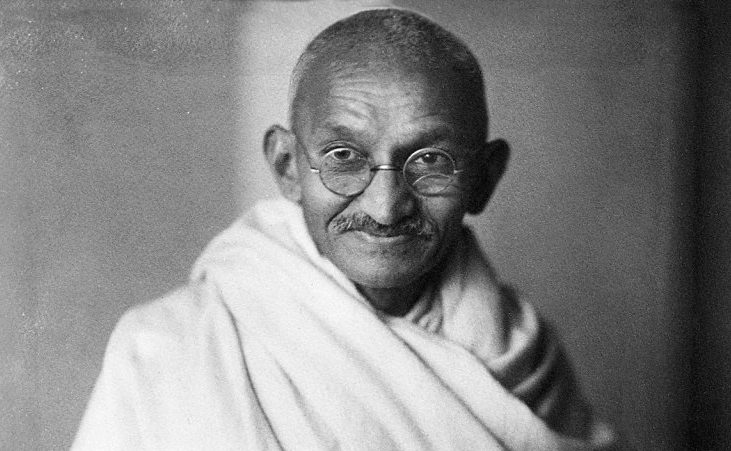United Nations: As the Covid-19 pandemic and regional conflicts pose myriad challenges to the world, top United Nations leaders on Saturday called on the international community to heed Mahatma Gandhi’s message of peace, underlining that the ‘satyagraha’ leader believed violence benefited no one, an assessment “vindicated” by history.
“It is not by chance that this day, October 2, coincides with Mahatma Gandhi’s birthday. In commemorating this day, we also celebrate the legacy of this remarkable man who taught us that there is nothing cowardly about non-violence, that choosing peace, even when confronted with injustice, even in our moments of what we think is our justified anger, is the height of bravery,” said President of the 76th session of the UN General Assembly Abdulla Shahid.
India’s Permanent Mission to the UN organised a special virtual commemoration of the International Day of Non-Violence, marking the birth anniversary of Mahatma Gandhi.
In his message to the virtual commemoration, Shahid said Gandhi based his life on the premise that in the end, conflict and violence benefit no one.
“History has vindicated this assessment. Let us never forget that this great institution, the United Nations, was founded from the ashes of a world that was at war with itself,” he said.
In a clarion call to the international community, UN Secretary General Antonio Guterres said on this year’s observance of the International Day of Non-Violence, “let us heed” Gandhi’s message of peace, “and get down to the business of building a better and more peaceful future for all.”
“It is no coincidence that we mark the International Day of Non-Violence on the birthday of Mahatma Gandhi. For Gandhi, non-violence, peaceful protest, dignity and equality were more than words. They represented a guiding light for humanity, a map to a better future,” Guterres said.
He said non-violence, peaceful protest, dignity and equality also provide a template to address today’s troubled times.
“Conflicts and climate change. Poverty and inequalities. Mistrust and divisions. All under the shadow of the Covid-19 pandemic, which continues to devastate people and economies alike,” he said.
“We call on combatants around the world to lay down their arms and focus on defeating humanity’s common enemy — Covid-19 — not one another,” the UN chief said, explaining the urgent need to deliver life-saving vaccines and treatment, and support countries in the long road to recovery ahead.
India’s Permanent Representative to the UN, Ambassador T S Tirumurti said while Gandhi himself was influenced by great thinkers like American naturalist Henry David Thoreau, he in turn inspired many others political icons like Nelson Mandela and Dr Martin Luther King Jr.
“Gandhi-ji’s 21 years in South Africa shaped his thinking to inspire an entire nation and helped India overthrow colonialism. In turn, Gandhi’s non-violent struggle in India against colonialism inspired a whole continent called Africa to fight against colonialism.
“At a time when hate, discrimination, terrorism and conflicts are on the rise, the message of Mahatma Gandhi has never been more relevant – the message of truth and non-violence, Satyagraha and Ahimsa,” Tirumurti said.
Shahid said the values of peace enshrined in the UN Charter were compiled from the wisdom of a generation that saw the bitter and destructive path that humanity was on and envisioned a more peaceful and hopeful future.
A future where “our disputes are resolved through multilateralism and dialogue, where our resources and energy are not spent on petty quarrels and hatred, but on uplifting the condition of our species and our planet.
“Now more than ever, we need to reaffirm our commitment to that vision. In fact, we need to do better because we have now come to realise that eliminating violence entails much more than just ending armed conflict,” he said.
Shahid said the Covid-19 pandemic had been exceptionally difficult for marginalised communities and has compounded social ills, such as poverty, racism, inequality and exclusion.
“As Gandhi had once affirmed, nothing enduring can be built upon violence,” he said.
The virtual commemoration played messages from various global leaders from other events held earlier, speaking on Gandhi, among them were former US President Barack Obama, Bangladesh Prime Minister Sheikh Hasina and New Zealand Prime Minister Jacinda Ardern.
Obama said, “On a more personal level, India represents an intersection of two men who’ve always inspired me. When Reverend Dr Martin Luther King Jr was protesting racial segregation in the United States, he said his guiding light was Mahatma Gandhi. When Dr King came to India, he said that being here in Gandhi’s land reaffirmed his conviction that in the struggle for justice and human dignity, the most potent weapon of all is non-violent resistance. And those two brave souls are why we can gather here today, Indians and Americans, equal and free,” Obama said.
Footage from a special commemorative event ‘Leadership Matters: Relevance of Gandhi in the Contemporary World’ hosted by Prime Minister Narendra Modi to mark Gandhi’s 150th birth year in September 2019 during the 74th session of the General Assembly at the UN was also played.
Modi had been joined by Guterres, South Korean President Moon Jae-in, Singapore Prime Minister Lee Hsien Loong, Hasina, Jamaican Prime Minister Andrew Holness and Ardern, where they remotely inaugurated a 50-kilowatt Gandhi Solar Park and the Gandhi Peace Garden at the UN Headquarters.
At the event, Modi had said Gandhi ji was Indian but he did not belong only to India but to the entire world.
PTI
